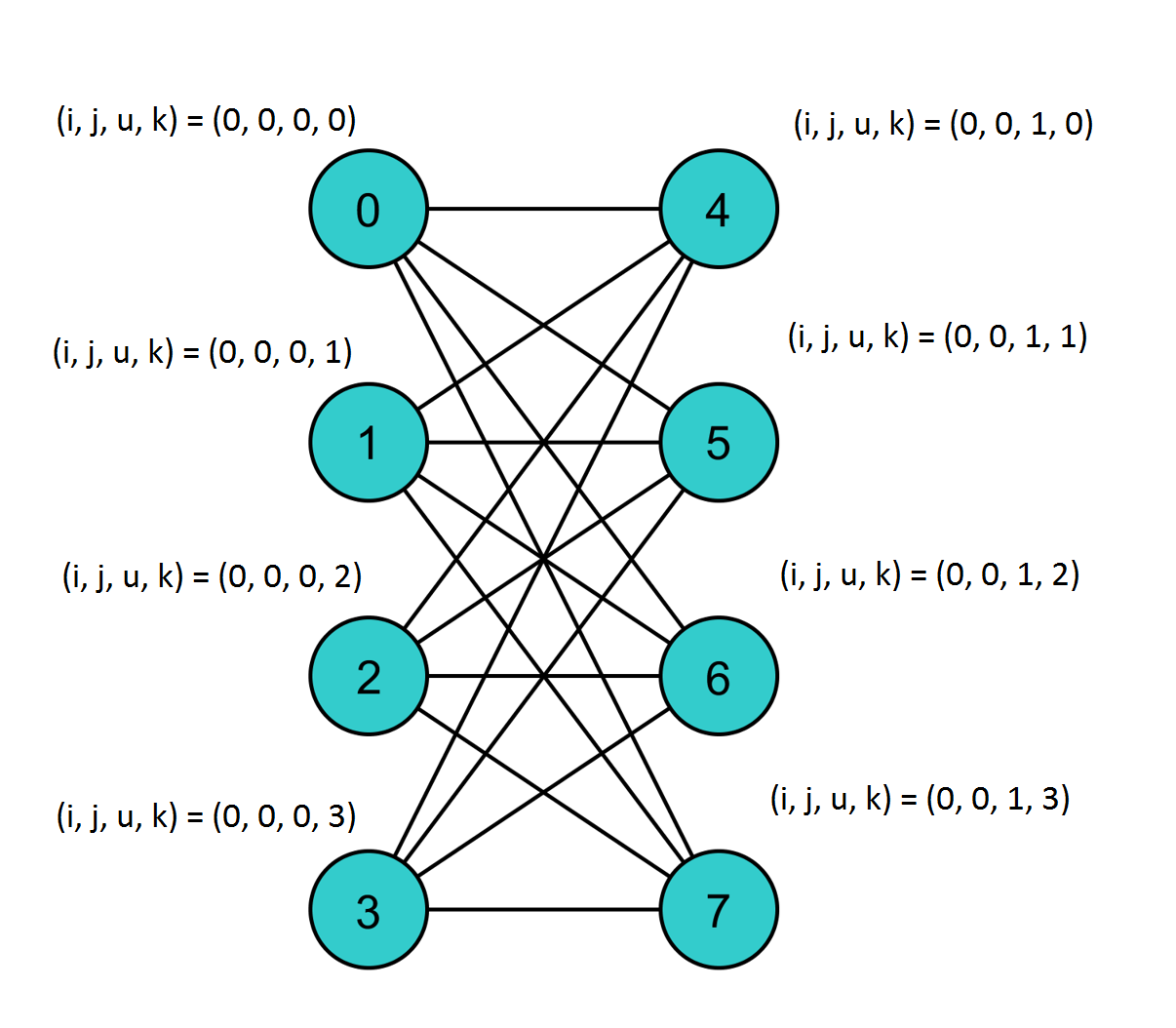Graph Generators#
Generators for graphs, such the graphs (topologies) of D-Wave System QPUs.
D-Wave Systems#
|
Creates a Chimera lattice of size (m, n, t). |
|
Creates a Pegasus graph with size parameter |
|
Creates a Zephyr graph with grid parameter |
Example#
This example uses the the chimera_graph() function to create a Chimera lattice of size (1, 1, 4), which is a single unit cell in Chimera topology, and the find_chimera() function to determine the Chimera indices.
>>> import networkx as nx
>>> import dwave_networkx as dnx
>>> G = dnx.chimera_graph(1, 1, 4)
>>> chimera_indices = dnx.find_chimera_indices(G)
>>> print chimera_indices
{0: (0, 0, 0, 0),
1: (0, 0, 0, 1),
2: (0, 0, 0, 2),
3: (0, 0, 0, 3),
4: (0, 0, 1, 0),
5: (0, 0, 1, 1),
6: (0, 0, 1, 2),
7: (0, 0, 1, 3)}

Indices of a Chimera unit cell found by creating a lattice of size (1, 1, 4).#
Toruses#
|
Creates a defect-free Chimera lattice of size \((m, n, t)\) subject to periodic boundary conditions. |
|
Creates a Pegasus graph modified to allow for periodic boundary conditions and translational invariance. |
|
Creates a Zephyr graph modified to allow for periodic boundary conditions and translational invariance. |
Other Graphs#
|
Creates a Markov Network from potentials. |